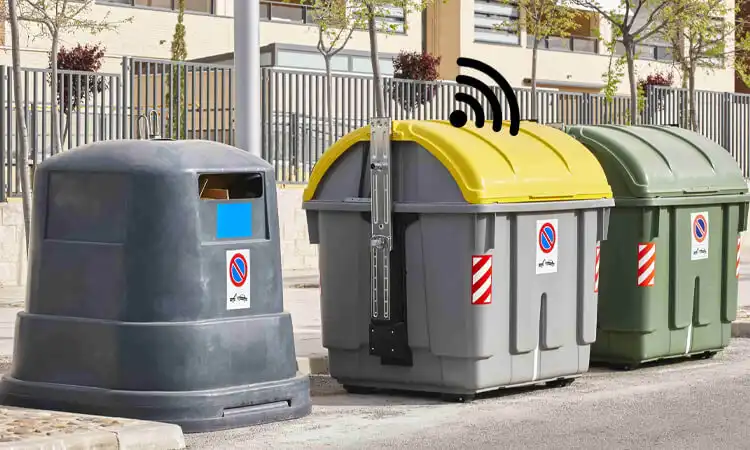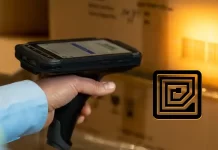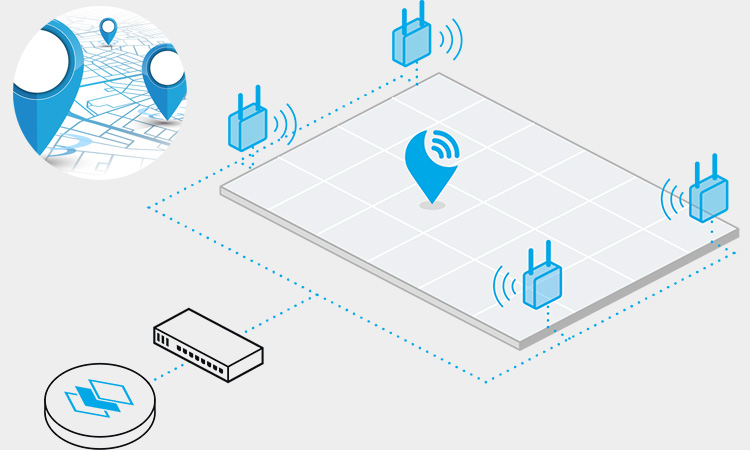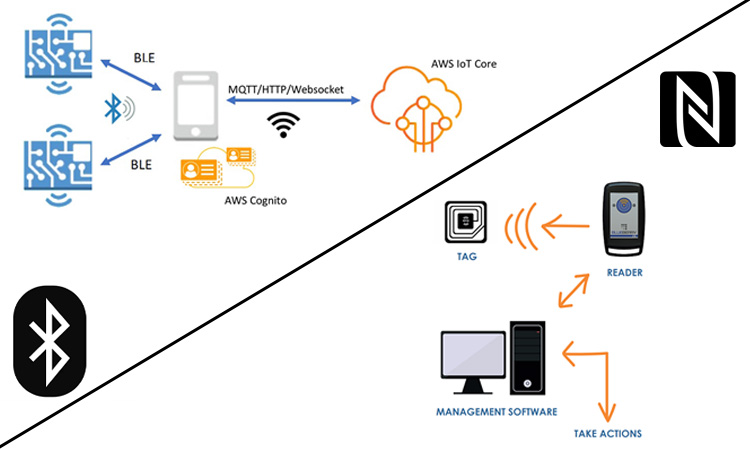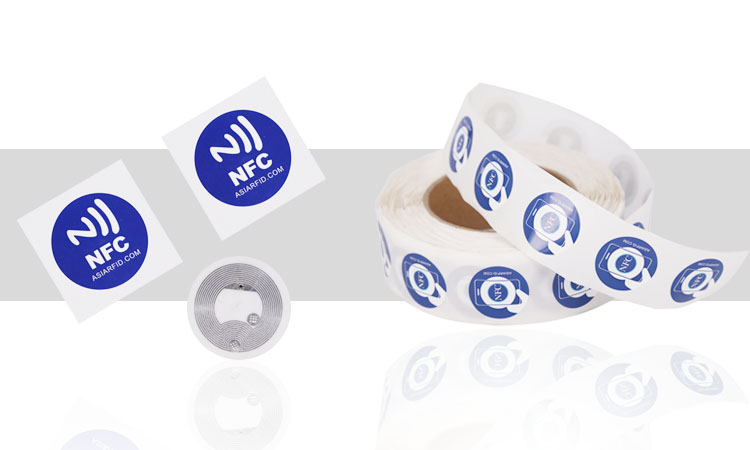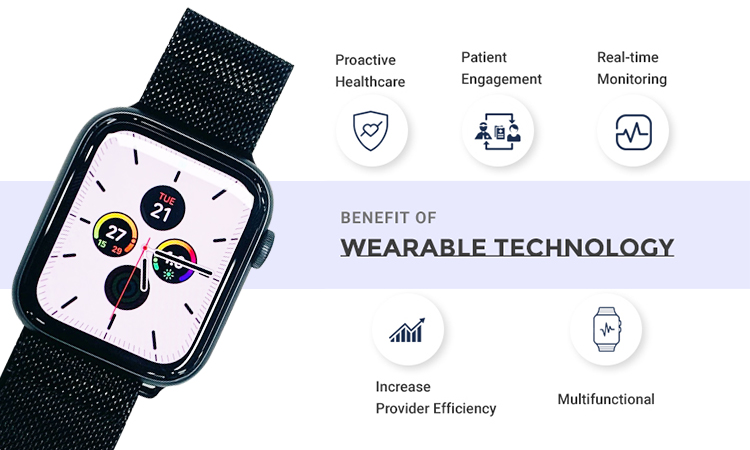In recent years, there has been a growing awareness of the importance of sustainability and resource efficiency. A circular economy is an innovative approach that seeks to minimize waste and maximize the use of resources. One key aspect of the circular economy is effective waste management, which can be facilitated by RFID technology. RFID offers real-time data and insights that can help reduce waste, increase transparency, and improve sustainability. This article will explore the benefits and challenges of implementing RFID waste management in the circular economy and examine case studies and prospects.
RFID Waste Management in the Circular Economy
The circular economy is a new paradigm that aims to reduce waste and promote sustainability by keeping materials in use for as long as possible. Effective waste management is a critical component of the circular economy. RFID technology is emerging as a promising tool to optimize this process.
What is RFID in Waste Management?
RFID (Radio Frequency Identification) in waste management is a technology that uses radio waves to identify and track waste containers or bins. RFID tags are attached to the containers, and RFID readers are installed along the waste collection route at various points. The RFID readers automatically detect and record data about the container, such as its location, weight, and contents. This information is then transmitted to a central database, where it can be used to optimize waste collection routes, track recycling rates, and monitor waste disposal practices.
Why Use RFID for Waste Management?
There are several advantages to using RFID tags waste management in the circular economy.
RFID technology unleashes the full potential of waste as a resource. By precisely tracking waste streams, RFID tags provide the data and visibility needed to optimize recycling, increase reusability, and reduce residue sent to landfills. This enables companies to keep materials in use longer, capture more value from resources, and move closer to zero waste.
RFID tags waste management enhances traceability so companies always know where their waste and materials are in the cycle. This tackles the “out of sight, out of mind” problem and ensures high-quality recycling and safe reprocessing at every stage. Over time, valuable information on material types, contaminants, and degradation helps improve recycling programs and find innovative reuse opportunities.
RFID tags facilitate the closure of resource loops by connecting waste generators with potential users of secondary materials. Real-time data on waste availability, quantity, quality, and location helps match materials with new applications and sustainably chained supply networks. This helps transition economies from linear to truly circular.
By smarter management of waste and materials, RFID technology delivers significant financial savings, new revenue streams, and competitive advantages. Costs are lower, assets are prolonged, innovative green products emerge, and customers support purpose-driven companies. The circular economy becomes a profitable model, not just an environmental imperative.
RFID based solid waste management system thus equips companies to commercialize waste and meet the demands of the green economy. With optimized material flows, new connections across industries, and higher-value uses of resources, companies can build a sustainable future through innovations that close material loops and waste no opportunity for growth. By seeing waste as wealth rather than cost, RFID tags help rewrite business rules to benefit both people and the planet.
Here are three real-life examples of how RFID technology is used for waste management:
- In Stockholm, Sweden, RFID tags track waste containers and optimize waste collection routes. The tags are installed on the containers and are read by RFID readers attached to garbage trucks. The data collected by the system is used to optimize the collection routes, reducing fuel consumption and minimizing the environmental impact of waste collection.
- In Barcelona, Spain, RFID technology is used to monitor the recycling rates of residential buildings. RFID tags are attached to recycling bins, and the data collected is used to track the recycling rates of each building. The system provides feedback to residents, encouraging them to improve their recycling habits and reduce waste.
- In Singapore, RFID tags are used to track hazardous waste disposal. The tags are attached to containers of hazardous waste, and the data collected is used to monitor waste disposal and ensure compliance with environmental regulations. The system helps prevent the illegal dumping of hazardous waste and promotes responsible waste management practices.
Challenges and Solutions for Implementing RFID Technology for Waste Management in the Circular Economy
Although RFID technology has the potential to optimize waste management and advance circular economies, there are valid concerns that must be addressed to realize its potential fully. Overcoming obstacles related to technology, costs, regulations, and mindsets is essential to effective RFID tags waste management.
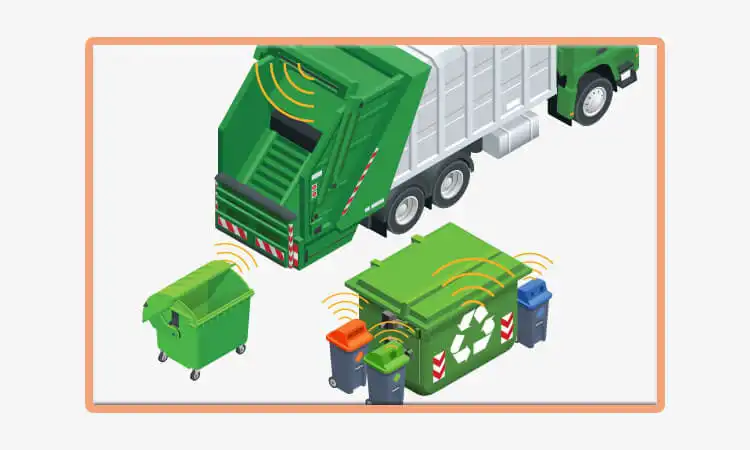
Interoperability between RFID systems and data privacy are critical technology concerns. Solutions must balance capabilities with affordability and ease of use for mainstream adoption. Significant upfront investments in hardware, software, and integration with existing infrastructure may also be required, necessitating a sound business case.
Compliance with waste laws, privacy regulations, and other policies adds complexity, requiring close coordination with legal and regulatory stakeholders. Clear policies and guidelines can help mitigate risks around data ownership, liability, and unapproved uses of resources and materials.
Costs of technology, infrastructure, training, and maintenance frequently pose barriers to sustainability investments. However, the total cost of ownership should be assessed based on avoided costs and new value created through optimized waste and circular business models. Proven savings and other benefits can justify RFID waste management costs, especially if phased in pragmatically.
Collaboration is key to overcoming obstacles, gaining knowledge, driving standardization, and achieving real-world impact at scale. Multi-stakeholder partnerships are pivotal to innovation and progress, especially with technology providers, waste/resource companies, industry associations, and government agencies.
Continual advancement in affordable, useful RFID solutions and evolving business models (e.g., waste/materials-as-a-service) will make RFID based solid waste management system more viable and scalable over time. Progress along an adoption curve from early to mainstream use depends on cooperation and governance across these partnerships.
With a problem-solving growth mindset, RFID technology can successfully transform how waste and resources are managed to build sustainable and circular systems. By addressing obstacles pragmatically, rather than seeing them as insurmountable barriers, RFID tags waste management can progress from a promising idea to widespread practice. The circular economy depends on it.
Case Studies of RFID Waste Management
RFID technology has a transformative impact on waste management and sustainable resource use when implemented successfully at scale. The following 5 case studies explain how RFID enables a circular economy by converting waste into resources.
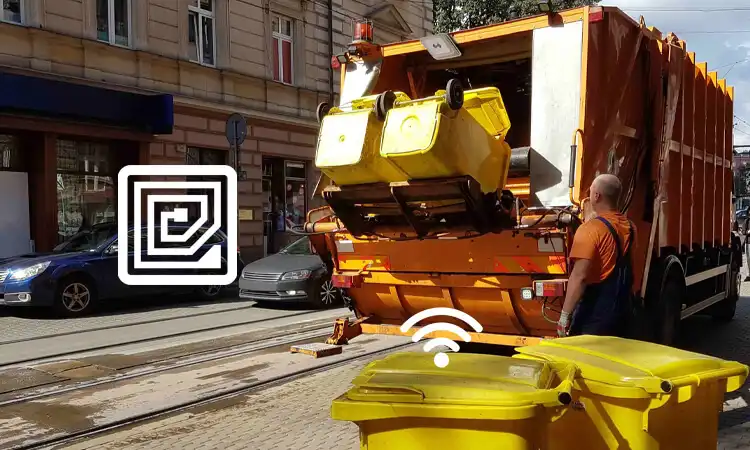
A retail company in France reduced waste sent to landfills by 60% using RFID based solid waste management system. RFID tags provided real-time waste generation and disposal data, allowing for optimized waste collection routes and significant waste reduction at minimal investment. This enabled the company to gain foundational insights into sustainable practices and the commercial viability of circular models.
RFID ensures proper hazardous waste disposal in the healthcare industry, improving safety, compliance, and environmental performance. RFID tags track waste volume, type, location, and end-of-life outcome, enabling facilities to exceed regulations and advance eco-goals. Alerts identify waste reduction, reuse, and recycling opportunities, decreasing overall risks and impacts while increasing accountability.
A waste management company in the Netherlands increased throughput and reduced landfill waste by 30% using RFID for advanced sorting and processing. Nearly single-stream recycling and reusability of materials became possible with minimal contamination, and revenue opportunities emerged around higher-value, sustainable waste, and resource services.
In the food industry, RFID reduced pre-consumer food waste by over 30%, which produces methane emissions costing billions annually. RFID tags monitor food waste locations, volumes, attributes, causes, and solutions, such as optimized forecasting, storage conditions, package sizes, or supply chain management. Sustainable food recovery programs expanded using RFID visibility and traceability.
A UK hotel chain reduced total waste by 30% through RFID technology for waste management, demonstrating potential across industries. RFID tags provided real-time data on waste generation across locations and types, enabling tailored initiatives to reduce waste and improve environmental impact while avoiding costs. Guests benefited from a superior “green” experience and image.
These case studies demonstrate RFID-based real-time smart waste management system’s business and environmental value in circular economies. By optimizing resources, improving eco-performance, reducing costs, and ensuring compliance, RFID can turn waste burden into opportunity when implemented at scale. RFID enables a sustainable future with minimal waste and maximum value reclaimed from resources. The path to progress is clear, and the possibilities are endless.
Future Outlook and Conclusion
The future of RFID waste management in shaping circular economies is bright. Multiple trends point to expanding opportunities and impact.
Continual progress in RFID technology will make solutions more advanced, affordable, and easy to use. More capable yet cost-effective RFID tags, simplified systems, integrations with software and infrastructure, and evolving business models will accelerate mainstream adoption. Early obstacles around cost, complexity, and compatibility will fade as innovation progresses.
Growing awareness of waste challenges and sustainability imperatives fuels interest in circular practices. Companies are committing more heavily to eco-performance, recycling goals, renewable materials, and resilience. Demand rises for data-driven approaches and accountability that RFID provides. Circular business models also emerge based on optimizing resource use, reducing waste, and creating value from waste/byproducts. RFID enables operationalization at scale.
Regulatory and policy support strengthens sustainable waste and materials management. Environmental regulations tighten waste handling, emissions, and pollution. Green purchasing preferences emerge, and economic incentives materialize around proving/improving eco-impact. Public-private partnerships form to embed circularity in systems and infrastructure, complementing RFID as a compliance and tracking tool.
Multi-stakeholder collaboration continues to power progress. Connecting data, infrastructure, funding, knowledge, and governance across the waste/resource ecosystem maximizes RFID potential. Partnerships evolve between technology companies, waste/recycling organizations, communities, nonprofits, researchers, and the government.
The global focus on sustainability challenges and UN SDGs brings more international support and investment. The circular economy rises as an imperative, with RFID-based real-time smart waste management system a key enabler. Policies, regulations, standards, metrics, and best practices spread across regions, with diverse applications of RFID for optimized, accountable, and eco-focused waste and supply chain management.
RFID waste management is a promising solution for optimizing waste management processes and contributing to a more sustainable future. With technological advancements, growing demand for circular practices, and strengthened regulatory support, RFID waste management is poised to play an increasingly important role in building circular economies. By embracing this technology and collaborating across industries, we can create a more sustainable future for future generations.
About RFID for Waste Management FAQs
-
What is RFID technology, and how does it work for waste management?
RFID technology uses radio waves to identify and track objects. In waste management, RFID tags can be attached to waste containers or equipment to track their movement and usage.
-
What types of waste management processes benefit the most from RFID technology?
Waste management processes that involve tracking waste movement and usage. Such as collection, transportation, and disposal, can benefit the most from RFID technology.
-
What types of RFID tags are best for waste management applications?
RFID tags that are durable, weather-resistant, and able to withstand harsh environments are best for waste management applications.
-
How does RFID technology compare to other waste management tracking systems?
RFID technology offers advantages over waste management tracking systems. Such as greater accuracy and real-time tracking capabilities.
-
What are some real-world examples of RFID waste management implementations?
We can know real-world examples of RFID waste management implementations. This including waste collection systems, landfill management systems, and recycling facilities.
-
What is the role of RFID waste management in achieving the United Nations Sustainable Development Goals?
RFID waste management can play a role in achieving several of the United Nations Sustainable Development Goals. This including Goal 12 (Responsible Consumption and Production) and Goal 13 (Climate Action).


